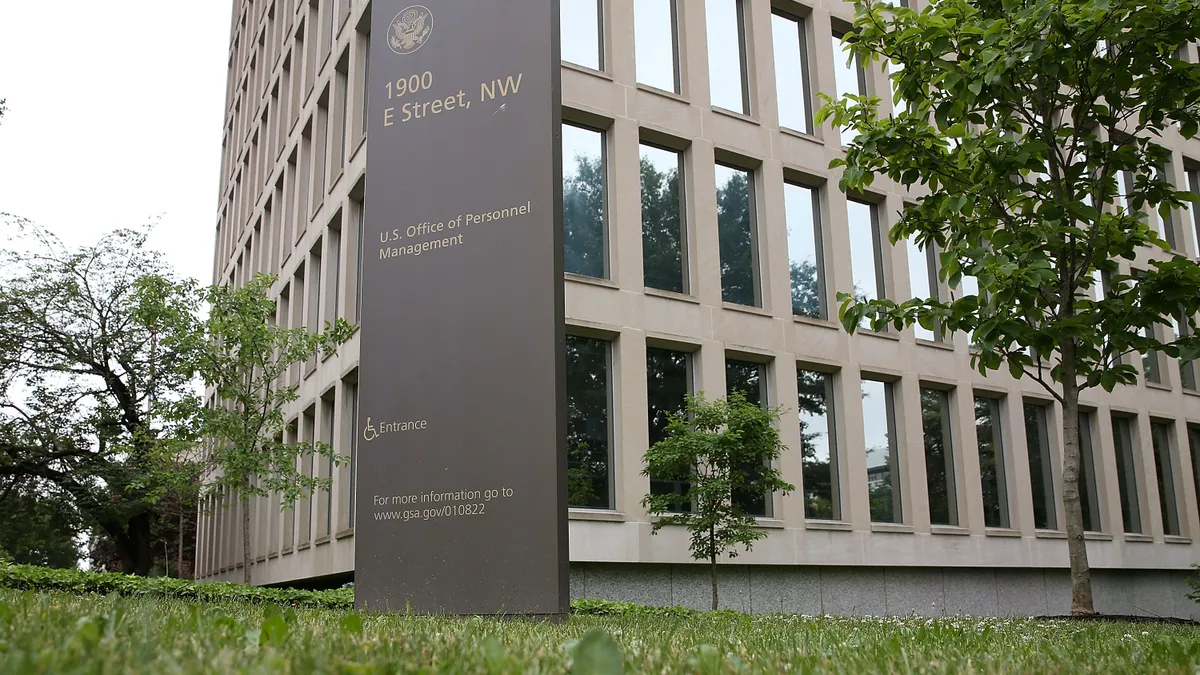Dive Brief:
- Collective bargaining agreement provisions that restrict a federal agency’s ability to set telework levels are “likely unlawful and unenforceable” and cannot impede President Donald Trump’s order directing agencies to end remote work, Charles Ezell, acting director of the U.S. Office of Personnel Management, said in a memo Monday.
- Citing Federal Labor Relations Authority precedent, Ezell said the ability to set overall telework levels and exclude specific positions from telework eligibility are management rights, and CBA provisions that conflict with such rights are unenforceable. Ezell added that the FLRA “has long held that agencies can declare unlawful provisions in existing CBAs unenforceable and no longer adhere to them, even if the CBA is past agency head review.”
- “Union contracts are enforceable by law, and the president does not have the authority to make unilateral changes to those agreements,” Everett Kelley, national president of the American Federation of Government Employees union, said in a press release responding to the memo. “AFGE members will not be intimidated. If our contracts are violated, we will aggressively defend them.”
Dive Insight:
Trump’s Day 1 executive order directing federal agencies to “take all necessary steps to terminate remote work” formed part of his efforts to reshape the federal bureaucracy. In tandem with that order, Trump rolled out a program offering “deferred resignation” to federal employees under which they would receive pay and benefits through Sept. 30, 2025, unless they choose to leave earlier.
An estimated 20,000 federal workers have accepted the deferred resignation offer as of Tuesday afternoon, Axios reported; interested employees have until Feb. 6 to accept. But the move drew resistance from some federal workers and their representatives, including AFGE. Kelley said in a Jan. 28 statement that Trump’s offer “should not be viewed as voluntary.”
“Between the flurry of anti-worker executive orders and policies, it is clear that the Trump administration’s goal is to turn the federal government into a toxic environment where workers cannot stay even if they want to,” Kelley added.
Only two-and-a-half weeks into his second presidential term, Trump has moved at a blistering pace to undo Biden-era policies and shuffle agency leadership. Associated efforts include, among other things, the ending of diversity, equity and inclusion programs within federal agencies as well as the controversial dismissal of agency heads whose terms had not yet expired.
Trump’s actions are already having an effect on employment law compliance, particularly with respect to the U.S. Equal Employment Opportunity Commission. EEOC has at least temporarily halted processing of claims that allege discrimination on the basis of sexual orientation and gender identity, sources recently told HR Dive.













